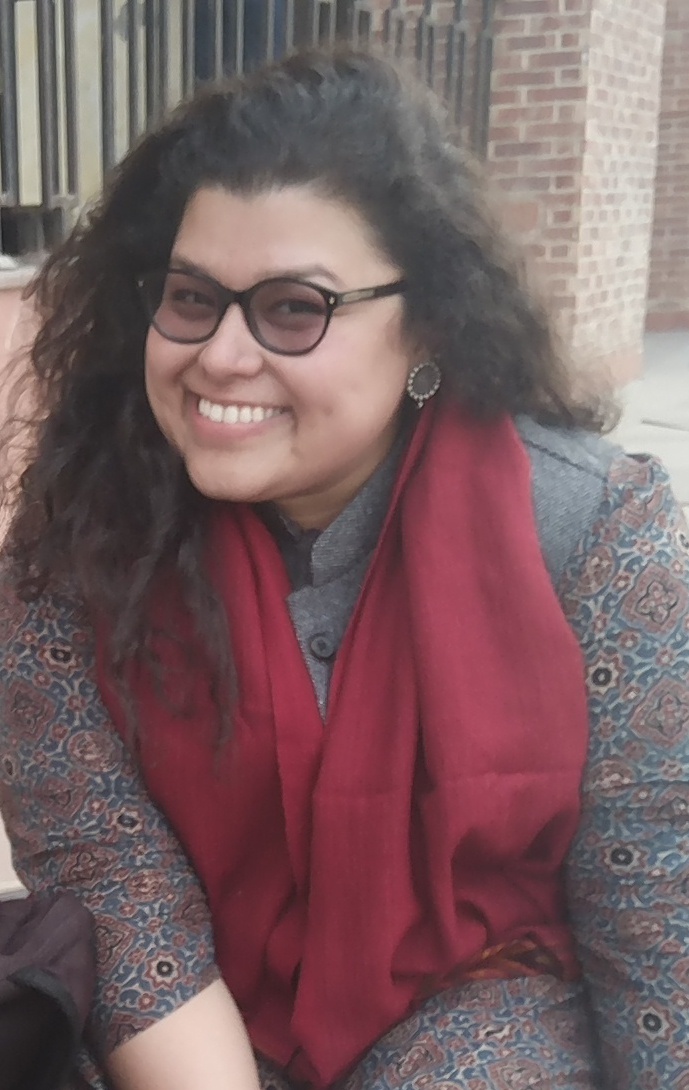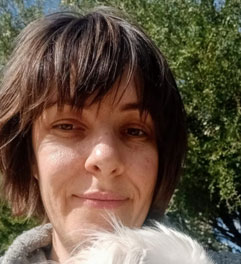|
1. Banerjee, Paula, Sabyasachi Basu Ray Chaudhury and
Samir Das, Internal
Displacement in South Asia: The Relevance of UN Guiding Principles
(New Delhi: Sage, 2005) Chapters 1-3 and 4-8

2. Basu, Sibaji Pratim, (ed.) The fleeing People
of South Asia, Selections from Refugee Watch (New Delhi:
Anthem Press, 2009)

3. Chimni,
Bhupinder S., “The Birth of a ‘Discipline’: From Refugee to Forced
Migration Studies,” Journal of Refugee Studies, Volume 22,
2009.
4. Chimni, Bhupinder S., “The
Geopolitics of Refugee Studies: A View from the South,”
Journal of Refugee Studies,
Volume 11(4), 1998.

5.
Fiddian-Qasmiyeh, Elena, Gil Loescher, Katy Long,
and Nando Sigona,
The Oxford Handbook of Refugee and Forced Migration Studies (Oxford:
Oxford University Press, 2014)

6. Guhathakurta, Meghna,
“Understanding Violence, Strategising Protection: Perspectives from
Rohingya Refugees in Bangladesh,” Asian Journal of Social Science
45, 2017, pp 639-665

7. Guhathakurta, Meghna, and Suraiya
Begum, “Protection Assessment for the Disadvantaged Undocumented
Myanmar Nationals and Local Population in Selected Areas of Cox’s
Bazar District,” Report Commissioned by the Bangladesh National
Women’s Lawyer’s Association (BNWLA), 2016

8. Guhathakurta,
Meghna, Suraiya Begum and Saidur Rahman, “A needs assessment of UMNs
population and capacity assessment of service providers in makeshift
settlements with a focus on Sex and Gender Based Violence (SGBV),”
Study Commissioned by the International Organization for Migration
(IOM), 2016

9. Haddad, Emma, The Refugee in International
Society (Cambridge: Cambridge University Press, 2008)

10. Laruelle, Marlene, (ed)
Kyrgyzstan, Political Pluralism and Economic Challenges
(Washington: George Washington University, 2017) Part 2, Chapter 2

11. Laruelle, Marlene, (ed)
Uzbekistan, Political Order, Societal Changes and Cultural
Transformations (Washington: George Washington University,
Central Asia Programme, 2017) Part 2, chapters 6 and 7

12. Mathew, Penelope and Tristan Harley, Refugees,
Regionalism and Responsibility (Northhampton: Edward
Elgar Publishing, 2016) Part I and Chapters 7and 9.

13. Matthews, Elizabeth G, with David
Newman, Mohammed S Dajani Daoudi (eds) The Israel Palestine
Conflict: Parallel Discourses (Routledge, 2011) Chapters 1 and 2
14. Murshid, Navine, The Politics of Refugees in
South Asia (London and New York: Routledge, 2017) Chapter
2, Refugee Voices, pp 15-34.

15. Samaddar, Ranabir (ed.), Refugees
and the State (New
Delhi: Sage, 2003), Introduction, Chapters 1-3, 6, 11

16. Refugee
Watch No 45 June 2015

Basu Roy, Arpita, “Returnees in
Afghanistan: Impediments to Reintegration,” Refugee Watch 45,
2015, pp 61-74
Canefe, Nergis, “Post-Colonial State
and Violence: Rethinking the Middle East and North Africa outside
the Blindfold of Area Studies,” Refugee Watch 45, 2015, pp
7-31
Chatterjee, Suchandana, “Putting the
Local Back in Uyghur History’: The Uyghur and Dungan Migrants of
Central Asia,” Refugee Watch 45, 2015, pp 47-60
Ghosh, Anwesha, “Marginality and
Migration: The Plight of Persecuted Religious Minorities of
Afghanistan,” Refugee Watch 45, 2015, pp 75-85
Singh, Priya, “A Syrian Exodus: The
Case of Lebanon and Jordan,” Refugee Watch 45, 2015, pp
32-46
17. Refugee
Watch 48, December 2016

Adelman, Howard, “Commentary on
Canada’s Reception of Syrian Refugees,” Refugee Watch 48,
2016, pp 104-116
Belma Kurtişoğlu, Selda Öztürk & Hussain
Hajj, “Performing the Migration,” Refugee Watch 48, 2016, pp
67-81
Canefe, Nergis, “Migration as a
Necessity: Contextualising the European Response to the Syrian
Exodus,” Refugee Watch 48, 2016, pp 82-103
Canefe, Nergis,” Introduction: Syrians
are Coming? Reframing the Syrian Refugee Crisis,” Refugee Watch
48, 2016, 1-6
Chiara Denaro, “Syrian Refugees’
Reception in Southern Europe: The Shifting Content of the Right to
Asylum in Lesvos, Sicily and Melilla,” Refugee Watch 48,
2016, pp 49-66
Kathryn E. T. Dennler, “The Politics
of Mobility on Lesvos, Greece: A Critical Scholarly View from The
Beach, The Camp, and The City,” Refugee Watch 48, 2016, pp
34-48
Pınar Uyan Semerci and Emre Erdoğan,
“Guests to Neighbours: The Difficulty of Naming Syrians in Turkey,”
Refugee Watch 48, 2016, pp 20-33
Singh, Priya, “Politics and Policy:
Syrian Refugees and the European Union,” Refugee Watch 48,
2016, pp 7-19
18. Refugee
Watch 49, June 2017

Sengupta, Anita, “The Migrant as a
Political Object: “Guests” in Turkey, EU Debates and the Middle
Eastern Conundrum,” Refugee Watch 49, 2017, pp 62-77
19. Majumder, Suchismita, Priyanca
Mathur Velath and Kriti Chopra, Madhura Chakraborty, “Rohingyas in
India: Birth of a Stateless Community,” MCRG Policies and
Practices 71, 2015

20. Sengupta, Anita and Simon Behrman,
“Labour, Law and Forced Migration,” MCRG Policies and Practices
70, 2015

21. Sergey Abashin: Movements and Migrants in Central Asia

22. Laruelle, Marlene and Caress
Schenk (eds) Eurasia on the Move: Interdisciplinary
Approaches to a Dynamic Migration Region (Washington:
George Washington University,
Central Asia Program, 2018)

23. Hugo, Graeme, Mohammad Jalal Abbasi-Shavazi and Ellen Percy
Kraly (Eds) Demography of Refugee and Forced Migration
(Springer, 2018)

24. Cook, Alistair D.B. and
Christopher W. Freise, " Forced Migration and Terrorism:
Southeast Asian Human Security Challenges"

25. Wahab, Andika Ab., " The Future
of Forced Migrants in ASEAN"

26. Ho, Elaine Lynn-Ee, Laura Madokoro
and Glen Peterson, " Refugees, Displacement and Forced Migration
in Asia: Charting an Inclusive Research Agenda",(Working Paper
Series No. 236, ARI, 2015).

International
Migration Review
Feliciano, Cynthia, “Does Selective
Migration Matter? Explaining Ethnic Disparities in Educational
Attainment Among Immigrants’ Children,” International Migration
Review, Volume 39 (4),2005, pp 841-871 
Levitt, Peggy, Josh DeWind and Steven
Vertovec, “International Perspective on Transnational Migration: An
Introduction,” International Migration Review, Volume 37(2),
2003, pp 847-873 
Macklin, Audrey, “Methodological
Nationalism, the Social Sciences and the Study of Migration: an
Essay in Historical Epistemology,” International Migration Review,
Volume 37(2), 2003, pp 576-610 
Portes, Alejandro and Josh De Wind, “A
Cross Atlantic Dialogue: the Progress of Research and Theory in the
Study of International Migration,” International Migration Review,
Volume 38(2), 2004, pp 828-851

Vertovec, Steven, “Migration and Other Modes of
Transnationalism: Towards Conceptual Cross Fertilization,”
International Migration Review, Volume 37(2), 2003, pp 641-665

|



